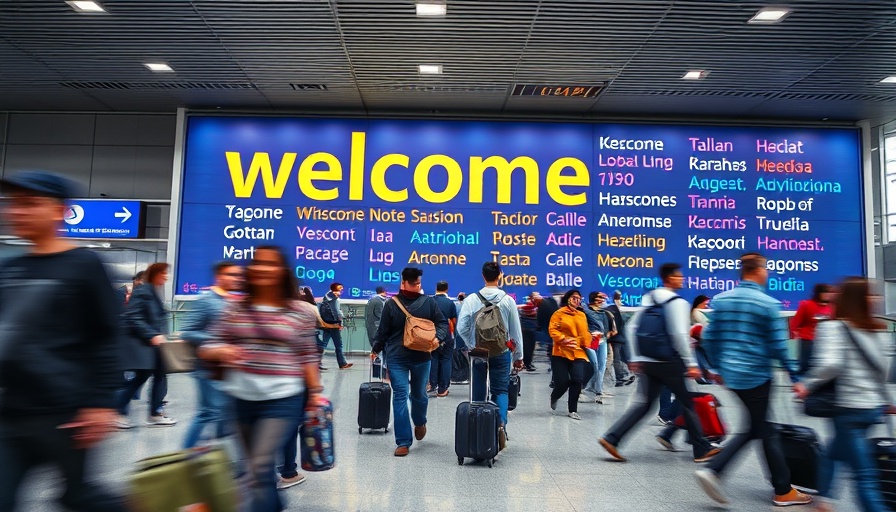
Confusion Surrounding Trump's Travel Ban: What's at Stake?
On June 5, 2025, President Trump announced a controversial travel ban targeting citizens of mainly African and Middle Eastern nations, claiming it would protect the US from potential terrorist threats and individuals overstaying their visas. However, experts have described the ban as contradictory, revealing deeper implications about political motivations and national security.
The List of Targeted Countries: Analyzing the Choices
The travel ban includes 12 countries: Afghanistan, Myanmar, Chad, the Republic of Congo, Equatorial Guinea, Eritrea, Haiti, Iran, Libya, Somalia, Sudan, and Yemen. Additionally, travel from Burundi, Cuba, Laos, Sierra Leone, Togo, Turkmenistan, and Venezuela faces some restrictions. Critics argue that the selection of these countries lacks transparency and consistency. Doug Rand, a former immigration official, points out that the criteria for this list seem politically motivated rather than based purely on data or national security needs.
Contradictions in National Security Logic
Despite the claimed rationale of preventing attacks and visa overstays, many countries that pose significant risks for these issues are overlooked. For instance, Egypt, a strategic military partner in the Middle East, is notably absent from the ban, raising questions about the criteria used in its formulation. Nationals from Syria, a nation with historical ties to terrorism and ongoing conflict, also enjoy an exemption.
What Could This Mean for Travel and Relations?
The reintroduction of this travel ban may not only affect individuals wanting to visit the US but could also strain diplomatic relations with affected nations. Some experts, like immigration analysts, warn that this could lead to a chilling effect on those seeking to travel for legitimate reasons, impacting cultural exchange and international understanding.
Local Reactions: Mixed Feelings in the Community
Responses from the public in the US are largely divided. While some citizens express support for stronger security measures, others reflect concerns that this ban unfairly targets specific populations based on nationality. For many families, the implications of this ban could affect their children’s education or their social ties in an increasingly interconnected world.
Looking Ahead: The Future of U.S. Travel Policies
As the U.S. grapples with complex immigration and travel policies, it is crucial for citizens to remain informed and engaged with these political developments. The evolving landscape poses questions about national security, civil rights, and the ethical implications of such bans. Observers predict that the persistence of these travel policies will ignite further debates in the political arena, calling for a reassessment of the balance between security and human rights.
In Conclusion: The Importance of Dialogue and Understanding
Engaging in constructive dialogue surrounding travel bans and immigration policies is essential for fostering a more inclusive society. It's vital for citizens, particularly parents and community leaders, to voice their opinions and push for transparency in these significant policies. This commitment to understanding can strengthen the fabric of American society, promoting a narrative that values diversity while also ensuring safety.
 Add Row
Add Row  Add
Add 




 Add Row
Add Row  Add
Add 

Write A Comment